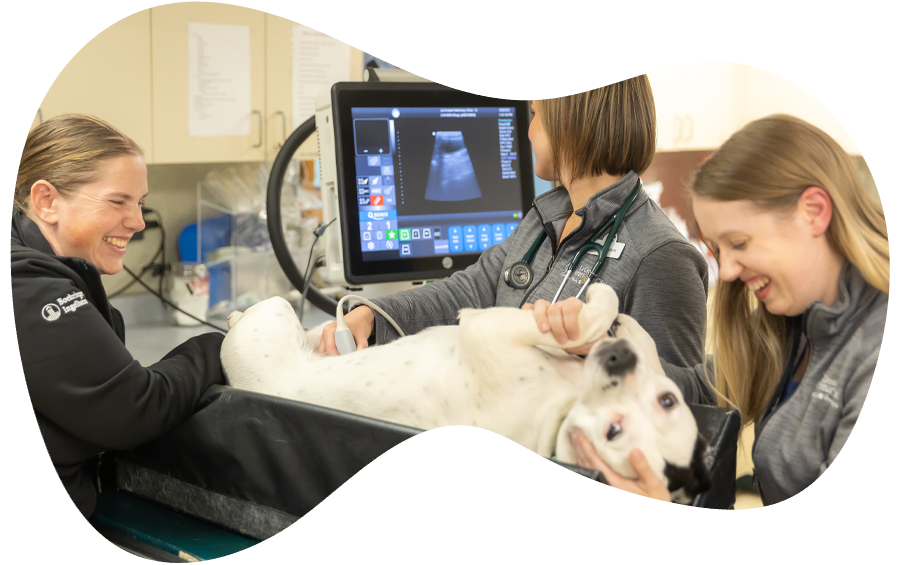Veterinary Diagnostics in La Crosse, WI
Thanks to advances in veterinary diagnostics and earlier intervention, pets are living longer than ever. La Crosse Veterinary Clinic offers several advanced diagnostic services that enable us to examine your pet internally and treat health conditions more efficiently. For your convenience, we offer most of these services in-house.
To schedule an appointment with our veterinarians, call (608) 781-3466 or use the online form!

Our Laboratory Services
We perform many veterinary diagnostic tests right here in our in-clinic laboratory. Even if your pet appears healthy on the outside, the results of a blood test, fecal exam, or urinalysis can help us detect the early stages of an illness or disease before your pet starts feeling sick. For tests we cannot perform in-house, we rely on outside diagnostic laboratories that are staffed by veterinary experts. Below is a list of the most common tests we perform in our laboratory.
Blood tests for pets can help to determine the health of their internal organs such as the liver, kidneys, pancreas, adrenal glands, immune system, muscles, and bone. We also offer testing to analyze the blood cells for infections, anemia, blood clotting disorders, and more. Other blood tests look for specific disease-related antigens and antibodies such as Feline Leukemia Virus (FeLV), Feline Immunodeficiency Virus (FIV), heartworm disease, Lyme disease, and more.
This blood test is used to detect the presence of six common diseases: heartworm disease, which is spread by infected mosquitoes; and five diseases spread by several types of ticks: Lyme disease, two types of ehrlichiosis, and two types of anaplasmosis.
A fecal exam involves examining a fresh stool sample under a microscope to detect the presence of intestinal parasites such as hookworms, roundworms, and whipworms.
A urine sample can provide information about the function of many internal organs, including the kidneys, bladder, and pancreas. The results of a urinalysis can indicate the presence of certain metabolic diseases such as diabetes, bladder crystals, inflammation, the formation of stones in the bladder, the presence of infectious bacteria, and the presence of abnormal or cancerous cells.
Digital Pet X-Rays
La Crosse Veterinary Clinic uses digital radiography (X-rays) to examine your pet’s bones and soft tissues safely and painlessly. Digital radiographs can also be used to identify foreign bodies. This diagnostic tool provides a number of benefits, both for your pet and for our veterinarians. With our X-ray unit, we can produce images within seconds and share them digitally if necessary. The quality of the images is very clear and detailed, which helps us better examine your pet by zooming in or changing the color or contrast in specific areas of the image.
Pet Ultrasound
Ultrasound involves examining the body’s internal structures by recording the echoes of ultrasonic waves. In collaboration with Dr. Rita Miller, one of our board-certified referring veterinarians, we offer ultrasound technology to examine your pet’s internal organs. We use the Doppler ultrasound technique, which also evaluates blood flow. This technique is safe, painless, and effective for examining your pet.

